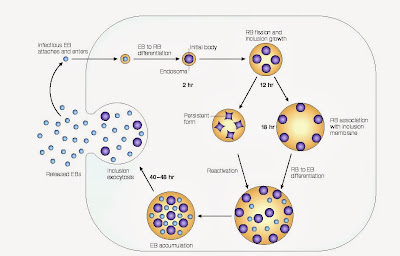Getting pregnant after trying hard can be morale-downing. But when you visit an infertility specialist, he/she will present you with plethora of options. Ultimately, it’s you that have to decide which option is feasible in your case.
So who is Dr. Basic when you’re trying to get pregnant? The average doctor is not easy to find, so how are you supposed to know which one you should see when you’re trying to get pregnant? Some of the more common abbreviations you may see include the following:
• M.D.: Medical doctor trained in traditional medicine with four years of medical school after college and a residency length varying with specialty. After that, residency can range from 2-10 years.
• D.O.: Doctor of osteopathy. These doctors used to be more trained in manipulation and homeopathic methods, but today’s osteopaths train in programs virtually identical to traditional medical schools.
• OB: Obstetrician. This specialist is trained to take care of pregnant women and handle labor and delivery. OBs are also gynecologists but may specialize in pregnancy. Also, you can refer to an infertility specialist.
• GYN: Gynecologist. This physician is trained to take care of women’s health. Obstetricians and gynecologists all start with the same four-year residency training after medical school, but they may choose to specialize in one area of the specialty.
• RE: Reproductive endocrinologist. This doctor is a graduate of an OB/ GYN program who has chosen to specialize in infertility. After medical school, these doctors complete three years of additional training, called a fellowship, to take tests to become certified for this sub-specialty.
• FP: Family practitioner. These doctors have chosen to specialize in the health of the entire family. In some parts of the country they, rather than OBs, handle many women’s health problems, including pregnancy and deliveries.
You may also come across these terms when looking for a doctor:
• Board eligible: These doctors have completed the education in their specialty and can now take the tests to become board certified.
• Board certified: These doctors have practiced their specialty for two years, taken the tests necessary to be certified, and have passed them.
If you live in a remote area, you may need to start with your family doctor because infertility specialists may not have offices in your area. Also, you may feel more comfortable starting with a doctor who already knows you, such as your OB/GYN or family doctor. If your doctor believes that your case is more complex than he is qualified to treat, he’ll probably refer you to someone more experienced in your particular situation.
So who is Dr. Basic when you’re trying to get pregnant? The average doctor is not easy to find, so how are you supposed to know which one you should see when you’re trying to get pregnant? Some of the more common abbreviations you may see include the following:
• M.D.: Medical doctor trained in traditional medicine with four years of medical school after college and a residency length varying with specialty. After that, residency can range from 2-10 years.
• D.O.: Doctor of osteopathy. These doctors used to be more trained in manipulation and homeopathic methods, but today’s osteopaths train in programs virtually identical to traditional medical schools.
• OB: Obstetrician. This specialist is trained to take care of pregnant women and handle labor and delivery. OBs are also gynecologists but may specialize in pregnancy. Also, you can refer to an infertility specialist.
• GYN: Gynecologist. This physician is trained to take care of women’s health. Obstetricians and gynecologists all start with the same four-year residency training after medical school, but they may choose to specialize in one area of the specialty.
• RE: Reproductive endocrinologist. This doctor is a graduate of an OB/ GYN program who has chosen to specialize in infertility. After medical school, these doctors complete three years of additional training, called a fellowship, to take tests to become certified for this sub-specialty.
• FP: Family practitioner. These doctors have chosen to specialize in the health of the entire family. In some parts of the country they, rather than OBs, handle many women’s health problems, including pregnancy and deliveries.
You may also come across these terms when looking for a doctor:
• Board eligible: These doctors have completed the education in their specialty and can now take the tests to become board certified.
• Board certified: These doctors have practiced their specialty for two years, taken the tests necessary to be certified, and have passed them.
If you live in a remote area, you may need to start with your family doctor because infertility specialists may not have offices in your area. Also, you may feel more comfortable starting with a doctor who already knows you, such as your OB/GYN or family doctor. If your doctor believes that your case is more complex than he is qualified to treat, he’ll probably refer you to someone more experienced in your particular situation.



